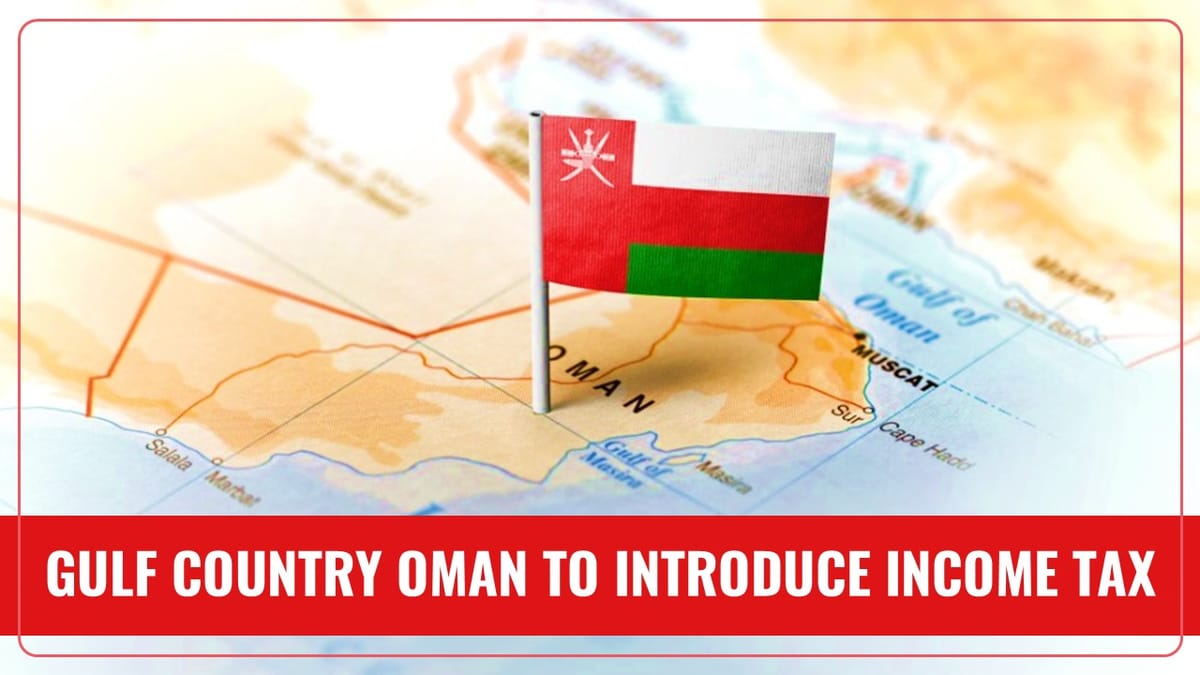As reports indicate GCC or Gulf Cooperation Council countries may also begin levying income tax, with Oman likely to lead the way.
Reetu | Aug 24, 2024 |

Gulf Country Oman to Introduce Income Tax; New Rule will impact over 6 Lakh Indians
Income tax has been a source of contention among Indians, particularly the country’s ‘Middle Class’ since the Union Budget was delivered in July. However, the wave of income tax may not be limited to the peninsula’s coastlines, as reports indicate that GCC or Gulf Cooperation Council countries may also begin levying income tax, with Oman likely to lead the way.
According to some reports, Oman may become the first of the GCC countries, which include Saudi Arabia, Kuwait, the United Arab Emirates, Qatar, and Bahrain, to collect income taxes from its citizens.
The Omani government is planning to impose 5 to 9% in taxes on persons earning more than Rs.84 lakh.
This taxation system is estimated to affect up to 6 lakh Indians living and working in Oman. Many of these Indians send remittances back home. According to sources, these remittances total Rs. 27,000 crore.
This comes at a time when other Petro-Monarchies are experiencing similar developments. Aside from Oman, there is talk of abolishing Kuwait’s zero-income tax system. Meanwhile, Saudi Arabia and the UAE continue to support the tax-free regime.
When we consider the bigger Indian diaspora living in Gulf countries. According to data from the Indian government, 8.9 million Indians are doing business in the aforementioned countries on the opposite side of the Arabian Sea.
The aforementioned Petro-monarchies have been mostly driven by the crude oil boom, and as a result, they have established systems that are primarily welfare-oriented, in which the country or ‘state’ distributes funds to citizens from its own resources.
Therefore, taxation and its presence in these countries have been relatively low. Only recently has this system seen a fundamental change.
With depleting oil reserves and decreased consumption of petroleum goods (many as part of the much-touted green transition), several of these countries have been compelled to search elsewhere for alternate sources of income to keep the system running.
Aside from focusing on economic expansion and tourism, leaving tariffs on products has also helped to keep the Arabian boat afloat.
Most products in Saudi Arabia are currently subject to a 15% VAT (Value Added Tax). This trend could lead to increased taxation, which will have an impact on India’s foreign workforce.
In case of any Doubt regarding Membership you can mail us at [email protected]
Join Studycafe's WhatsApp Group or Telegram Channel for Latest Updates on Government Job, Sarkari Naukri, Private Jobs, Income Tax, GST, Companies Act, Judgements and CA, CS, ICWA, and MUCH MORE!"